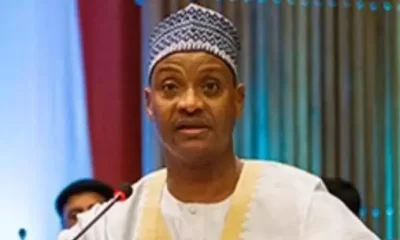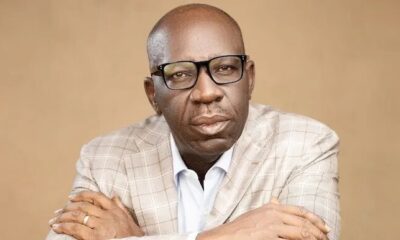Global Issues
Mozambique’s Conflict Resolution Model Acceptable for Africa, says United Nations’ Security Council -By Kestér Kenn Klomegâh
Mozambique also put in the spotlight, in addition to terrorism, delicate and thorny issues such as peace and security guarantees, maritime piracy, trafficking in people, drugs and human organs, the use of technologies to empower countries and gender questions.

The Republic of Mozambique, replacing Kenya, becomes the newest African representative to hold a non-permanent seat for 2023 and 2024 on the United Nations’ Security Council after it garnered 192 votes. According to the latest electoral results Japan, Switzerland, Malta and Ecuador will also take up two-year positions from January 1 next year. The five will succeed India, Norway, Kenya, Mexico and Ireland.
The Council is made up of 15 members, five of whom are permanent: Britain, China, France, Russia and the United States. The other ten positions are filled by other countries for two-year stints, five of which are announced each year.
While the five non-permanent states do not have the same veto powers as the permanent members, their votes are required to pass binding resolutions and can influence the council schedule via a monthly rotating presidency role.
Every candidate must obtain the votes of two-thirds of the member states present and voting at the General Assembly session. This means that a minimum of 129 positive votes are required to win a seat if all 193 UN member states are present and voting.
Japan, Switzerland, Mozambique, Malta and Ecuador were voted in by the UN General Assembly in a secret ballot. Out of the assembly’s 193 members, nearly voted for Mozambique. It was elected to the Council, for the first time, in its history with 192 votes. Switzerland won 187, Malta 185 and Ecuador 190.
Minister of Foreign Affairs and Cooperation, Verónica Macamo Dlhovo, has intensively and widely campaigned with the theme “International Peace and Security and Sustainable Development” and that underlines the firm commitment to and maintenance of international peace and security, the preservation and respect for human rights and promoting sustainable development – these are the most challenging priorities especially for Africa.
While campaigning, Verónica Macamo, expressed confidence and argued vehemently that her country has gained considerable experience in the fight against terrorism, particularly in northern province of Cabo Delgado. That province is rich in natural gas but has been plagued since 2017 by armed rebels, with responsibility for some attacks claimed by the local affiliate of the extremist group Islamic State.
Mozambique also put in the spotlight, in addition to terrorism, delicate and thorny issues such as peace and security guarantees, maritime piracy, trafficking in people, drugs and human organs, the use of technologies to empower countries and gender questions.
“We are also concerned about climate change,” said Macamo. “We have, as a Council, to find more effective ways to combat climate change, especially its effects. But we also have to look at biodiversity as a very important element to keep our world habitable.”
After the elections, Mozambique’s Head of State Filipe Nyusi, addressed the nation within the scope of Mozambique’s candidacy for a non-permanent seat at the United Nations Security Council (UNSC).
In that special address after the voting results, Filipe Nyusi gave the assurance that Mozambique would defend dialogue and multilateralism for peace in the world during the two-year mandate as a non-permanent member of the United Nations Security Council. “This multifaceted approach has gained international recognition as a successful intra-African model in the fight against armed groups,” he stressed.
The principles of defence of national interest and respect for the sovereignty and territorial integrity of states would guide Mozambique’s actions in the UN Security Council. “These are principles and rules that are clearly embodied in our Constitution and the Charter of the United Nations and will always be respected by Mozambicans,” he stressed.
He underscored the importance of a multifaceted approach in the search for peace and security, pointing to cooperation between the defence and security forces of Mozambique, Rwanda and the Southern African Development Community (SADC) as fundamental in the remarkable progress recorded in the fight against armed groups in the northern province of Cabo Delgado.
Mozambique’s peace process has been appreciated as a model that should be shared not only with African partners, but also in the rest of the world. Its news position and role on the Security Council the Security Council is a key instrument for the promotion of foreign policy interests, to promote peace and stability, which are fundamental for the prosperity and development of the entire Africa.
Mozambique’s candidacy was endorsed by the African Union, as a continental organization aggregating the will of 54-member African continental organization, and the regional blocs including the Southern Africa Development Community (SADC), of which Mozambique is a founding member. With an approximate population of 30 million, endowed with rich and extensive natural resources, Mozambique belongs to the African Union.


















